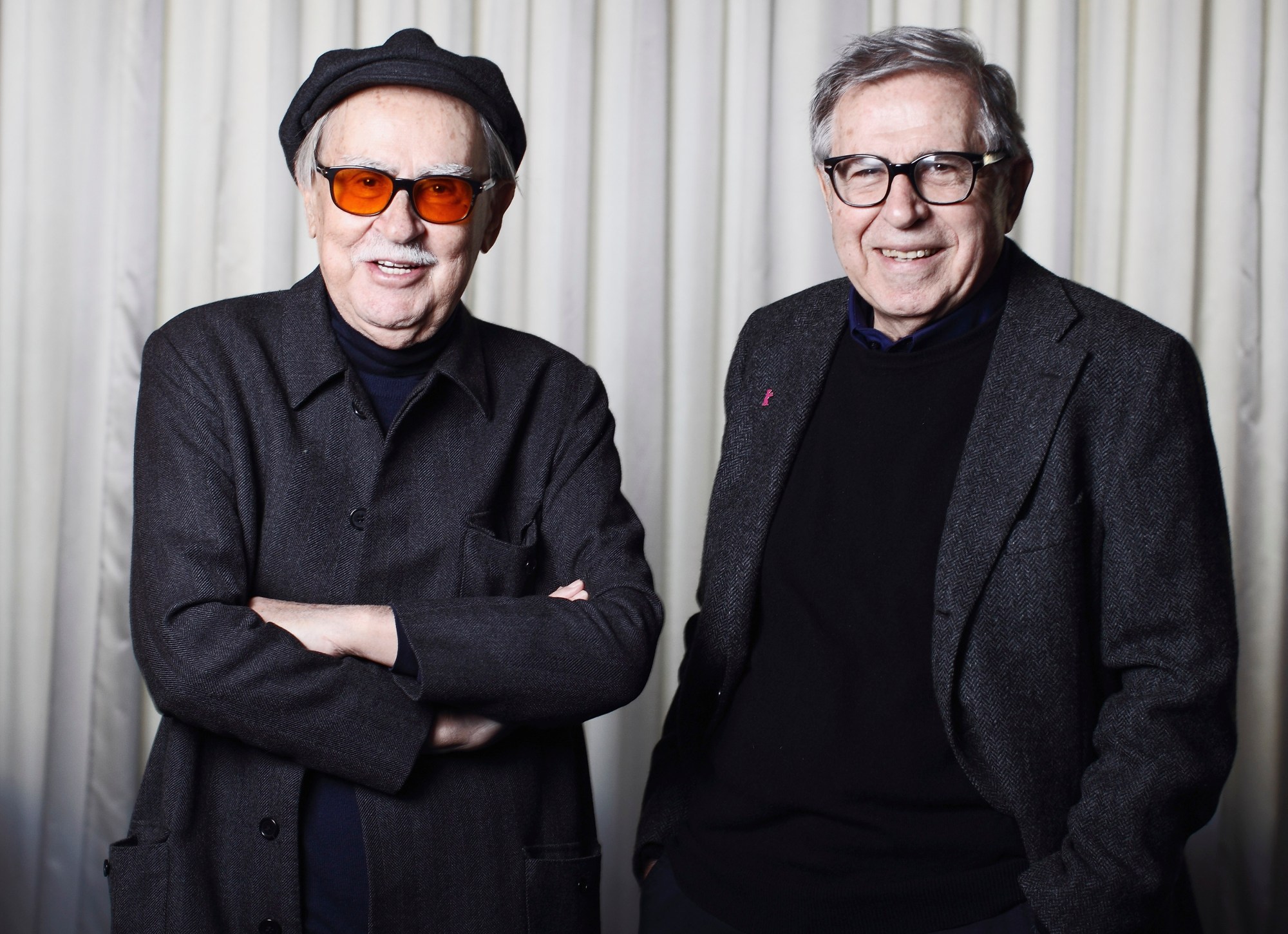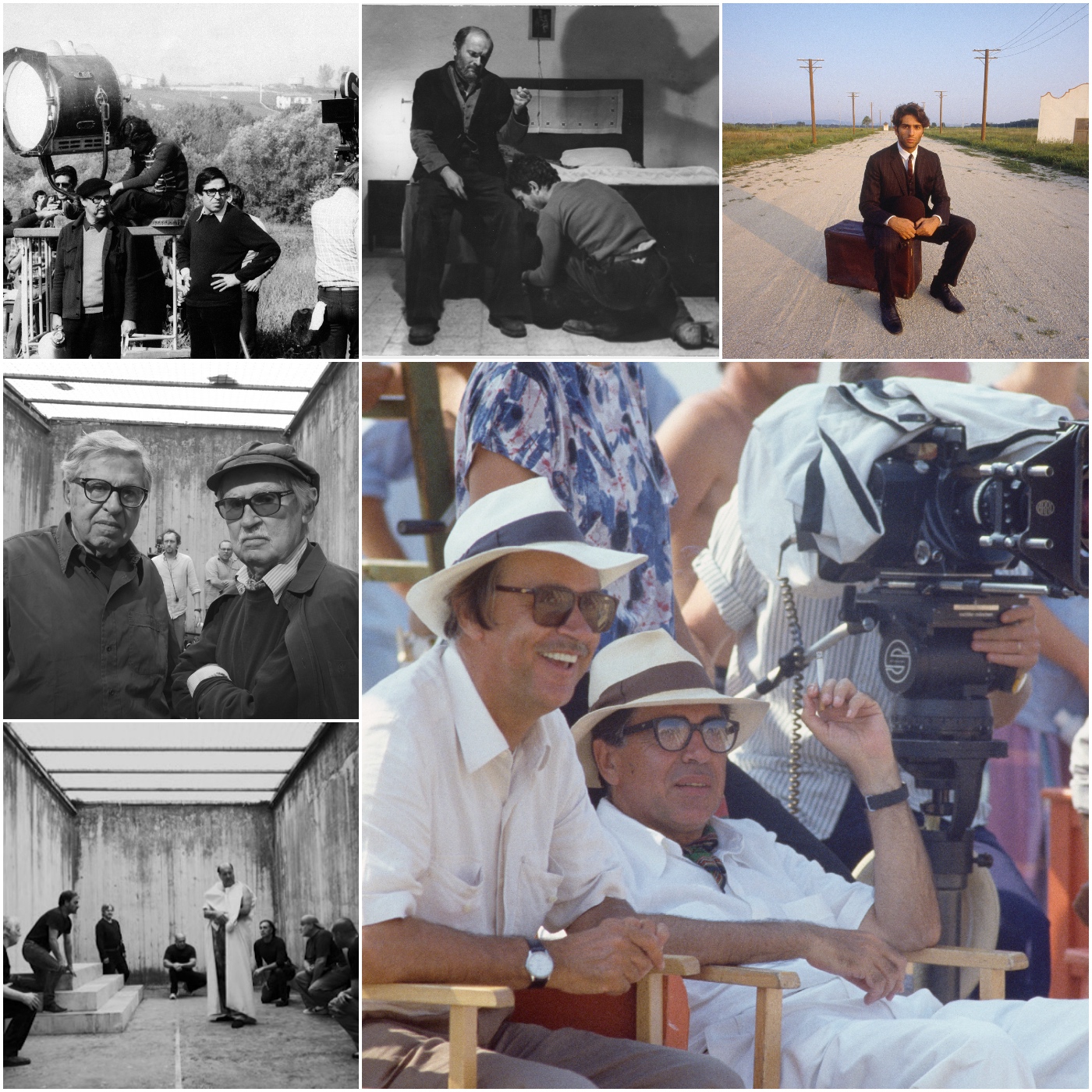
- Film
The Italian Cinema of the Taviani Bros
Vittorio Taviani (born September 29, 1929, in San Miniato, Italy) passed away on April 15, 2018, at age 88. In close collaboration with his younger brother Paolo (born November 8, 1931), he directed some important movies in the history of Italian cinema: San Michele aveva un gallo (1971) from the novel The Divine and the Human by Leo Tolstoy; Allonsanfàn (1974) with Marcello Mastroianni; Padre padrone (1977) the true story of Gavino Ledda, son of a Sardinian shepherd; La notte di San Lorenzo (The Night of the Shooting Stars, 1982), about a 1944 massacre in the cathedral of San Miniato; Good Morning, Babylonia (1987) about two Italian brothers who work in Hollywood as set designers on D.W. Griffith’s IntoleranceFiorile (1993) about the centuries-old curse on a peasant family; Cesare deve morire (2012) about inmates rehearsing a performance of Shakespeare’s Julius Caesar in Rebibbia Prison near Rome.
When the Taviani brothers spoke to the Hollywood Foreign Press in 1987 and 1993, they recalled their childhood in Tuscany during the war (recounted in their film The Night of the Shooting Stars) and how as refugees living in Pisa they saw Paisà (1946) by Roberto Rossellini. The neorealist masterpiece convinced them to become filmmakers.
“Later we discovered so many other masters, not only the Russian Sergei Eisenstein and the American John Ford, but the Italians Luchino Visconti and Vittorio De Sica. The experience of Padre padrone, about a reality that’s very exceptional for an American, has made us realize that, if you talk about feelings that are very authentic, then there is no ocean in between to separate us. When we presented it in New York we were very worried, what would young people who live here think about this guy who lives alone in the mountains? We asked that question, and the American youth said, “The loneliness that that shepherd suffers in his little hut is the same that we feel in our houses in Manhattan.” This is what makes us hope that some feelings can be transmitted beyond differences of different continents.”

A life in cinema. Clockwise, from top left: on the set of Allosanfàn, 1977; a scene from Padre, Padrone, 1977; actor Vincent Spano in a scene from Good Morning, Babylon, 1987; the Taviani brothers on the set of Good Morning, Babylon, 1986; the inmates of Rebibbia Prison perform Shakespeare’s Julius Caesar in a scene from Caesar Must Die, 2012; the Taviani brothers on location at Rebibbia Prison, 2011.
mondadori portfolio/ sygma/getty images
“In the Middle Ages artisans and craftsmen got together to build Gothic cathedrals of marble, today we gather together to build cathedrals of celluloid. We believe that cinema is a moment where men can be united, each one bringing their own creativity. With Good Morning, Babylonia, the important feeling is that a certain type of collective work together with other people is something that perhaps everybody can understand.”
“We love American films because they let us know America. John Ford with his strong men immersed in these large landscapes, Francis Coppola with his contemporary reality, Martin Scorsese with his stories. We hope that Americans love European movies because they let them know Europe. That’s why Italian neorealism is loved in America. Scorsese acknowledged that for Age of Innocence (1993) he was inspired by the movies by Luchino Visconti Senso (1954) and Il Gattopardo (1963). Federico Fellini always spoke of his small town in Emilia Romagna, Rimini, but he is the most international director that the world has known. If each nation manages to express itself and to bring its own truth, its own imagination into the world, this is what enriches the collective imagination of all of us. So you have to encourage this kind of encounter.”
The Taviani Brothers stand tall among other great Italian filmmakers of their generation, Bernardo Bertolucci, Marco Bellocchio, Ermanno Olmi.

